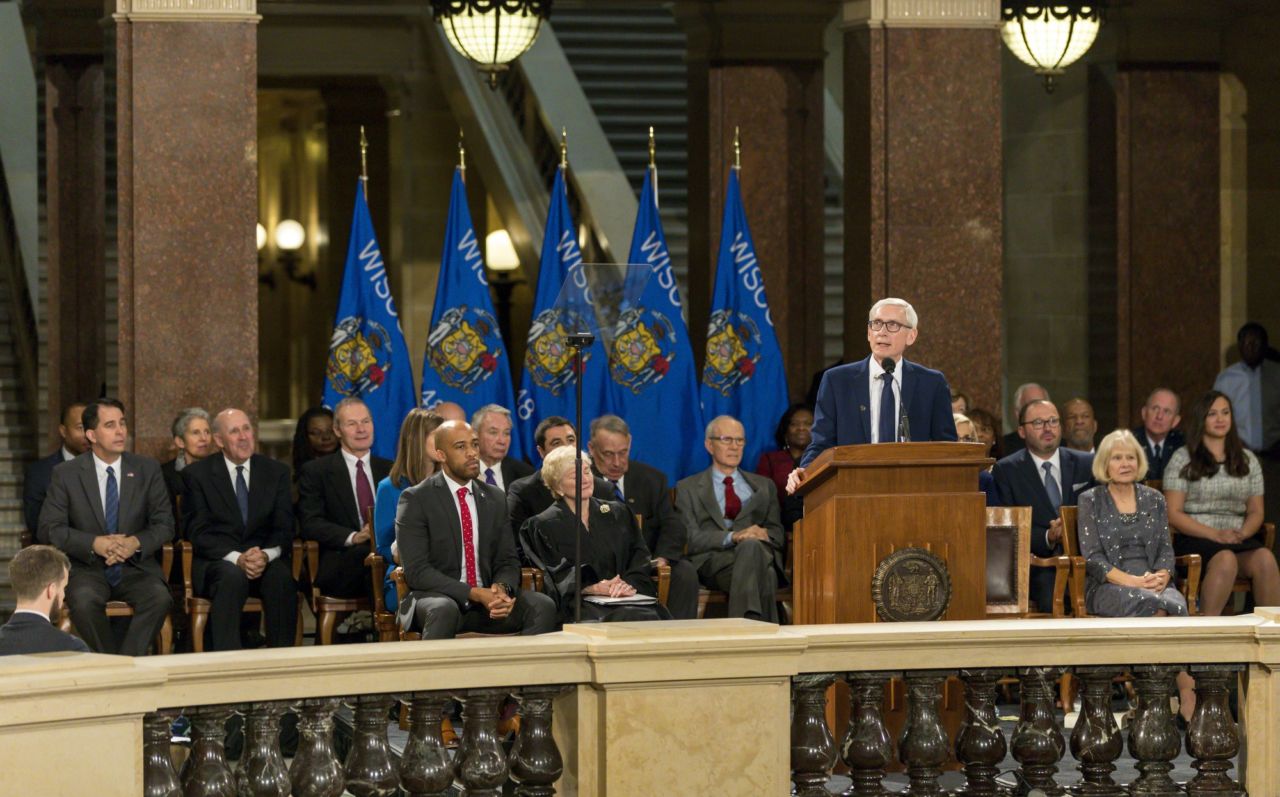Politics
Evers issues limited health care-related executive orders

MADISON, Wis. (AP) — Wisconsin Gov. Tony Evers signed a pair of executive orders Tuesday designed to fulfill his campaign pledge to increase access to affordable health care and insurance.
Without the support of the Republican Legislature, though, it will be nearly impossible for Evers to get what he wants. The executive orders call on state agencies to make recommendations and take action where they can to protect consumers with pre-existing conditions, expand health care access and make insurance more affordable.
Expanding Medicaid as Evers promised while campaigning would require the Legislature’s approval. He also would need its blessing to drop Wisconsin’s involvement in a multi-state lawsuit seeking repeal of the Affordable Care Act. And while Evers has called for protecting people with pre-existing conditions, he’s been lukewarm about legislative attempts to enact a state-level protection.
Evers and other Democrats instead have called for protecting the stronger guarantee in the federal law, also known as Obamacare.
One of his executive orders Tuesday calls for the state Insurance commissioner’s office, Department of Health Services and Department of Agriculture, Trade and Consumer Protection to implement plans and make recommendations on how to protect people with pre-existing conditions.
The Republican-controlled Assembly passed a state-level coverage guarantee for people with pre-existing conditions in 2017. But despite pleas from Walker for the Senate to pass it as well, the bill died there last year due to a lack of support.
It may not fare any better this year.
Assembly Speaker Robin Vos said Monday that he wants the bill to be the first one passed this year. But Senate Majority Leader Scott Fitzgerald said he didn’t want to “overpromise” and he cast doubt on whether he would order it up for a vote.
Democrats generally oppose the state’s pre-existing condition protection because it doesn’t go as far as the federal law’s guarantee. For instance, only the federal government can regulate self-funded plans. That means people insured by more than 150 companies in Wisconsin would lose the guarantees of coverage for pre-existing conditions if the Affordable Care Act were to be repealed.
The Evers order also calls on state agencies to enhance health care plan affordability, access and consumer protection, and to guard against attempts to undermine the Affordable Care Act marketplace with short term plans that aren’t in accordance with the law’s requirements.
Evers is also calling for the creation of insurance literacy curriculum for students and requiring insurers to provider clarity and transparency on health plan costs, coverage and benefits.
The other order Evers signed tasks the state health department with developing a plan to ensure that more people have access to quality, affordable health care by expanding Medicaid eligibility.
Evers campaigned on expanding the state’s BadgerCare Plus Medicaid coverage to about 75,000 poor people who earn up to 138 percent of the federal poverty level. Walker did a partial expansion but limited coverage only to those at or below the poverty line.
State law requires Evers to get the Legislature’s approval before Wisconsin can accept Medicaid expansion and federal money that would save the state about $180 million a year, on estimate.
Thirty-five states have taken the money, and voters in three others approved the expansion in the November election.
